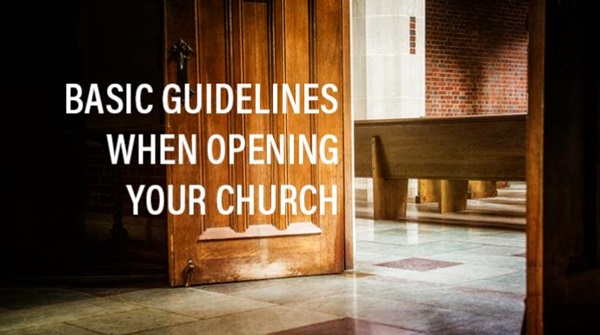When disasters occur, many churches feel the call to open their churches as shelters in order to help community members who have been displaced. If this is something you decide to do, there are many considerations to keep in mind.
In opening up your facility, it is important to research the local ordinances around shelters – even temporary shelters. It is also important to work with church staff and volunteers so they understand the responsibility they have in working with victims of disasters.
Plan before you open your doors
Before you open your church, determine how your facility will be used. For example:
- Does your church wish to simply supply shelter, or provide meals and laundry service as well? Will you be preparing meals or bringing in food?
- How many people can your facilities hold safely, and how many volunteers and staff members will you need to serve them?
- Will you provide essential items, such as toiletries? Do you have enough toilet paper, paper towels, dish sets, and utensils to handle a large influx of people?
- How will you provide security? Are your premises lighted sufficiently?
- How long will your church serve as a shelter? A few days? A month?
- Which rooms and buildings on your property will guests be able to access?
- If there is a medical emergency, what procedures will you follow?
- Will you provide childcare, or will parents and guardians be responsible for their own children? Are the spaces available to the guests child-proof? Have your volunteers and staff been trained to identify and prevent potential sexual abuse, using a program such as Safe Sanctuaries®?
You may be opening up the facilities to the whole of your community – which can occasionally result in challenges that need to be addressed before you open your doors. Set some ground rules for those staying at the church, as well as for those who are helping out. Guidelines you may develop for guests could include:
- Hours of operation
- Registration procedures
- Appropriate clothing
- No alcohol or drug usage
- No weapons
- No abusive, threatening, or profane language or actions
- No stealing or damage to another guest, volunteer, or staff member
- No pets, unless it is a service animal
- No disposal of personal belongings on property
Guidelines for volunteers and staff include:
- Show compassion, smile, be a positive and good listener
- Look everyone in the eyes, visit with the guests and show hospitality
- Provide guests with dignity and respect
But, volunteers and staff should be careful not to:
- Give out personal identification to guests
- Take personal laundry home for guests
- Lend money to guests (or carry money to the site)
- Purchase items for or from guests
- Provide medication of any type
- Clean up bodily fluids
- Promote religious beliefs during site operation
Youth volunteers should have constant adult staff or volunteer supervisors, and they should bring in a signed document indicating parent approval prior to beginning to volunteer.
Partner with an experienced agency
You don’t have to do it all yourself. If you connect with a nationally recognized charity – such as the Red Cross, or a local not-for-profit with experience in providing shelter for people who need help – they can share knowledge, resources, and liability.
You may see some damage. For example, having many people using the facilities around the clock might tax the plumbing system. But, if you partner with another agency, they may help to defray the costs of repair.
Even if you do not partner with another organization directly, coordinate with other agencies that are providing similar services. When you know what other organizations are doing, you can learn from their choices and experience and provide for the true needs of the community.
Opening your church as a shelter can have an enormously positive effect on a community that has been touched by a disaster. If you take the time to plan how you will use your facilities as shelter, you can diminish the risks and help a great many people in need.

